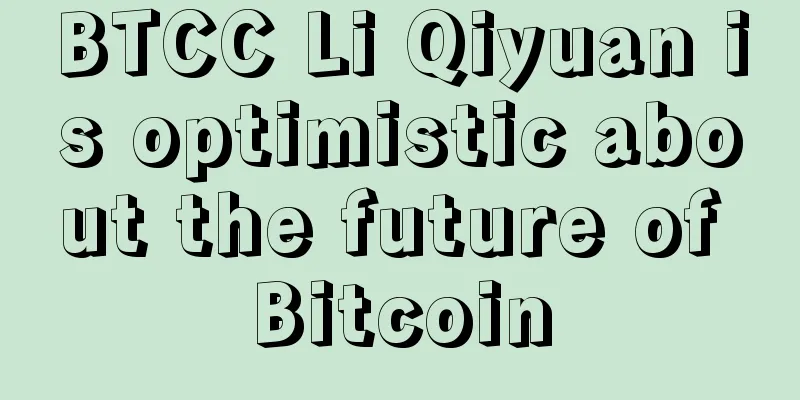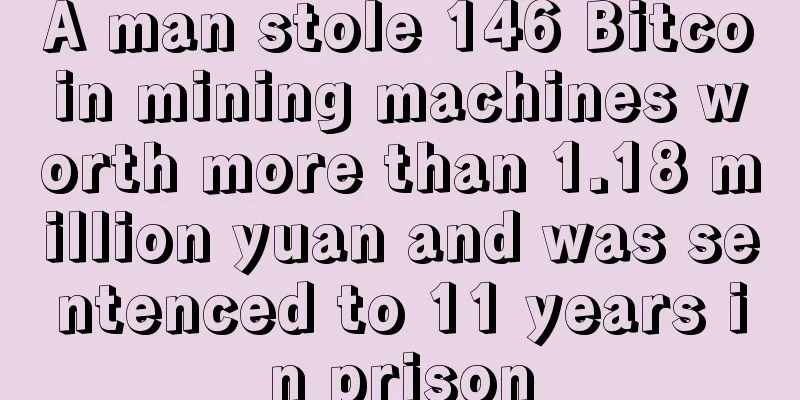BTCC Li Qiyuan is optimistic about the future of Bitcoin

|
I recently spoke with Bobby Lee, CEO of BTCC, China’s first and largest Bitcoin exchange. It’s fair to say that he was very optimistic about the situation of Bitcoin in China and around the world:
Mainland China makes up a sizable portion of the bitcoin community, with a large portion of “mining” activity, where miners use computing power to earn new coins. Some estimates suggest China currently accounts for about 80% of the global mining market. The use of Bitcoin in China is also different from other parts of the world. China has established a very advanced online payment infrastructure - WeChat Wallet and Alipay. Therefore, many Bitcoin holders do not use Bitcoin for daily transactions. They are involved in areas that ordinary Chinese citizens rarely touch, such as investment and currency exchange. Li Qiyuan said:
China’s Influence on Bitcoin Titled “Resolution on the Bitcoin Experiment,” the article is essentially a list of reasons why Bitcoin has failed. It has drawn widespread criticism online, with Gizmodo stating that “this is the 89th time Bitcoin has been declared dead,” noting that Bitcoin has been declared dead every few months since its inception. However, some of the criticisms raised in the article, especially those involving China, deserve serious attention. Another related criticism from Mike is that China’s dominance in the global bitcoin mining market has turned into a liability. Blockchain is the decentralized technology that makes all of bitcoin possible. “China is a strong pillar supporting Bitcoin,” Lee said. The people involved in Bitcoin in China — whether miners, consumers or both — represent some of Bitcoin’s greatest successes and some of its most worrying problems. Any solution to Bitcoin’s dilemma will involve taking China into account. This could mean improving the blockchain while keeping Chinese miners happy, or developing some kind of workaround to circumvent the latency issues caused by the Chinese firewall. China’s Demand for Bitcoin Li Qiyuan believes that Bitcoin will continue to be the representative of the digital currency movement in the future. He said: “We (BTCC) are agnostic. However, as a company, our core focus is on technology, whether it is based on Bitcoin, Litecoin or other digital currencies.” This place is starving for something like Bitcoin, and it will eventually be Bitcoin or another cryptocurrency that will satisfy that need, but of course, it will take time to reveal everything. |
<<: BitCongress explores new decentralized tamper-proof blockchain voting technology
>>: Blockchain technology actually pronounces the death of traditional database technology
Recommend
What does the hanging needle on the forehead represent?
What does the hanging needle pattern on the foreh...
Do women with moles on the right side of their neck have good fortune? What does a mole on the right side of the neck mean?
One of the factors that influence destiny is the ...
Nebraska lawmaker introduces bill to allow state banks to store cryptocurrencies
U.S. Senator Mike Flood of Nebraska has introduce...
What kind of face is this?
As the saying goes: Appearance reflects the heart...
Attack of the Miners: Understanding Bitmain’s Path to IPO in One Article
Market competition after three rounds of financin...
Analyze what kind of face people have?
There are many people in life who have poisonous ...
Is the blockchain investment boom a thing of the past? Because technology development is on the right track
Recently, a large number of media have reported t...
What kind of face does a woman have?
What we have to guard against in life are those p...
The ears tell a person's fate
The ears tell a person's fate 1. The ears are...
Is mining energy-consuming and environmentally unfriendly? Using mining machines to dissipate heat to heat your bath water may be a good idea
As the application of blockchain becomes more and...
How does a woman look without eyebrows? What kind of eyebrows are good for appearance?
Every woman's eyebrows have different feature...
Strong regulation is coming? Where will Hong Kong's cryptocurrency OTC go?
Since 2021, the Chinese government has explicitly...
Distributed ledger technology brings two reform forces to banks: cross-border payment system and digital legal currency network
The system we currently use to move money is larg...
Written before the third halving: Ten thousand words to interpret the Bitcoin price mechanism driven by miners
This article is from blockwaresolutions, original...
Characteristics of extremely intelligent people: clear and intelligent eyes
Different faces give people different impressions...









